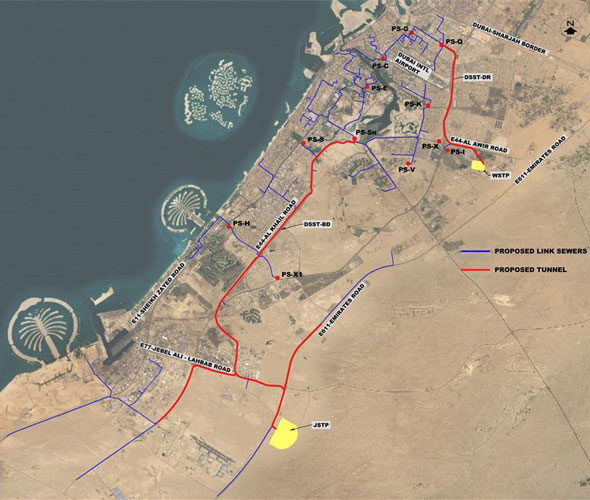Dubai is embarking on a colossal infrastructure project to bolster its flood defenses. The initiative, dubbed "Tasreef" (Arabic for "drainage"), comes after the emirate witnessed its heaviest rainfall in 75 years this April. The unprecedented downpour resulted in widespread flooding, significant infrastructure damage, and a surge in insurance claims.
Fueled by a Dhs30 billion (US$8. 1 billion) budget, Tasreef aims to significantly enhance Dubai's capacity to handle rainwater. The multi-year project will overhaul the city's entire drainage network, boosting its capability by a staggering 700%. This ambitious target translates to the revamped system handling a daily water volume exceeding 20 million cubic meters.
The project's swift commencement reflects Dubai's commitment to safeguarding itself against the intensifying threats posed by climate change. Sheikh Mohammed bin Rashid Al Maktoum, the ruler of Dubai, emphasized this point by stating that Tasreef "ensures Dubai's readiness to face future climate-related challenges. "
The unprecedented investment underscores the gravity of the situation Dubai faced in April. The torrential rains overwhelmed the existing drainage system, leading to flash floods that inundated streets and crippled transportation. Homes and businesses were not spared either, as many succumbed to water damage. The repercussions were severe, prompting the need for a comprehensive and long-term solution.
The details of Tasreef are still emerging; however, experts anticipate a multi-pronged approach. This could involve expanding the existing network of waterways and canals, incorporating additional pumping stations to improve water flow, and potentially even utilizing green infrastructure solutions. The latter might encompass creating rain gardens and permeable pavements that allow water to naturally filter back into the ground.
The project's scope necessitates a collaborative effort between various government entities. Dubai's Roads and Transport Authority (RTA) is expected to play a crucial role in coordinating construction activities across the city. Furthermore, close collaboration with urban planning departments will be paramount to ensure the new drainage system seamlessly integrates with the existing infrastructure and future development plans.
While the hefty price tag might raise eyebrows, Dubai's leadership views Tasreef as a necessary investment in the city's long-term resilience. The project is expected to provide significant economic benefits by safeguarding vital infrastructure and minimizing property damage during future floods. Additionally, a robust drainage system can contribute to improved public health by mitigating the risks associated with stagnant water and flooding.
The success of Tasreef hinges on its effective execution. The project's timeline stretches until 2033, necessitating meticulous planning and efficient implementation to minimize disruption to residents and businesses. However, if completed successfully, Tasreef will serve as a blueprint for other cities grappling with the challenges of extreme weather events in a changing climate.

